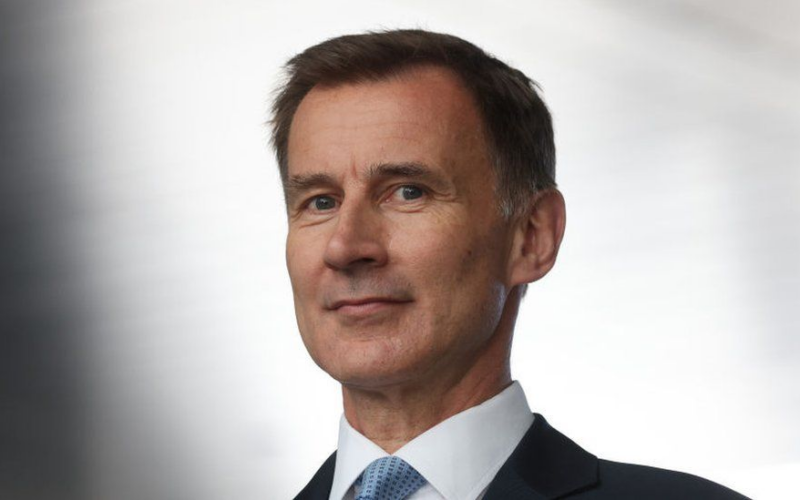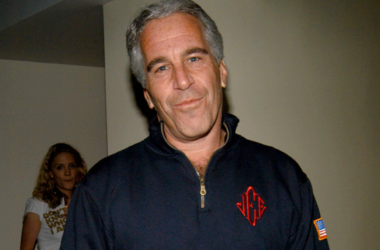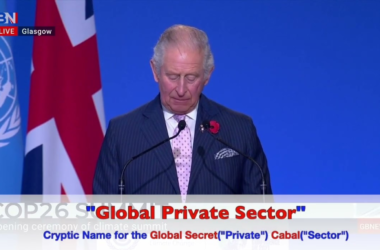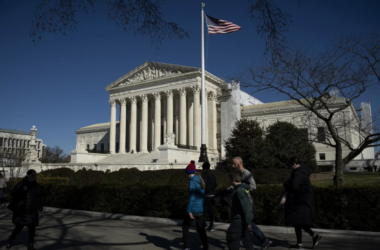Jeremy Hunt, the UK’s Chancellor of the Exchequer and a longstanding member of Parliament, faces an unexpectedly tough re-election battle in his traditionally Conservative stronghold of Surrey. Known for its picturesque villages, country pubs, and affluent communities, Surrey has reliably elected Mr. Hunt in five consecutive elections. However, as he prepares for the upcoming general election, he acknowledges that his political future is uncertain.
Hunt, who has represented the area for 19 years, is actively campaigning and connecting with voters in places like Chiddingfold, located about 50 miles southwest of London. Despite his local recognition and years of service, he describes this election as the most challenging he has faced.
The Conservative Party is grappling with significant voter dissatisfaction, fueled by economic stagnation, Brexit’s repercussions, and deteriorating public services after prolonged austerity measures. Many traditional Tory supporters are deserting the party, particularly in prosperous areas of England that have historically been its backbone. Current opinion polls suggest a possible landslide victory for the opposition Labour Party, which could unseat many longstanding Conservative MPs, including Hunt.
Political analysts highlight Hunt’s vulnerability despite his local ties and moderate stance. Professor Robert Ford of the University of Manchester expresses skepticism about Hunt’s chances of survival, noting that even a strong personal vote may not suffice against a broad electoral wave.
The challenge for Hunt in Surrey primarily comes from the centrist Liberal Democrats (Lib Dems), rather than Labour. The Lib Dems’ moderate politics appeal to conservative-leaning voters who are hesitant to support Labour but disillusioned with the Conservative Party. The newly drawn constituency of Godalming and Ash, which Hunt aims to win, incorporates much of the area he has represented since 2005 and is home to many commuters with high-paying finance jobs in London.
Tactical voting may also play a crucial role. In areas where the Lib Dems are best positioned to defeat Conservative candidates, they hope to attract centrist or left-wing voters who might otherwise favor Labour or the Green Party. This strategy aims to consolidate the anti-Conservative vote, increasing the Lib Dems’ chances of success.
In Shere, where Hunt attended school, Bob Jarrett, a retired European Commission worker and Labour Party member, embodies this trend. He votes for the Lib Dems instead of Labour to maximize his vote’s impact in the local context.
Criticism of the Conservatives stems partly from recent leadership controversies. Former Prime Minister Liz Truss undermined the party’s reputation for economic competence with her proposal for unfunded tax cuts, while her predecessor Boris Johnson alienated moderate voters with his pro-Brexit rhetoric and breaches of Covid-19 lockdown rules. Many Conservative voters remained loyal in the last election to avoid a hard-left Labour government under Jeremy Corbyn. However, current Labour leader Keir Starmer’s centrist approach makes the party a more appealing alternative for disillusioned Tories.
Paul Follows, the Lib Dem candidate, suggests that the Conservative Party has shifted away from its traditional supporters rather than experiencing a fundamental shift in voter preferences. He believes that Hunt’s portrayal as an underdog reflects broader discontent with the Conservative Party.
Hunt, canvassing in Chiddingfold, attributes the party’s difficulties to global economic challenges and the fallout from the pandemic and inflation, comparing the situation to President Biden’s struggles in the US. Nevertheless, he concedes that the party has made mistakes and needs to address its shortcomings.
During a recent meeting with about 40 villagers, Hunt faced polite yet critical questioning about various issues, including taxes, the economy, healthcare, and his stance on Brexit. He also faces a right-wing challenge from Reform UK, led locally by Graham Drage, who advocates for deregulation and tax cuts and is unfazed by the prospect of splitting the Conservative vote.
Jane Austin, a member of Hunt’s parliamentary team, notes that Hunt has always treated the area as a marginal seat but acknowledges that this election is particularly close.
If Hunt loses, he could become the highest-profile Conservative casualty since Michael Portillo’s defeat in 1997, when Labour achieved a landslide victory under Tony Blair. Despite the strong local support and personal connections Hunt enjoys, even his friends are contemplating their voting choices amid widespread calls for political change.
Craig Burke, a local business owner and personal friend of Hunt, reflects the broader sentiment: “If I didn’t know Jeremy, I would be in the mind-set of the country—to have a change.”








